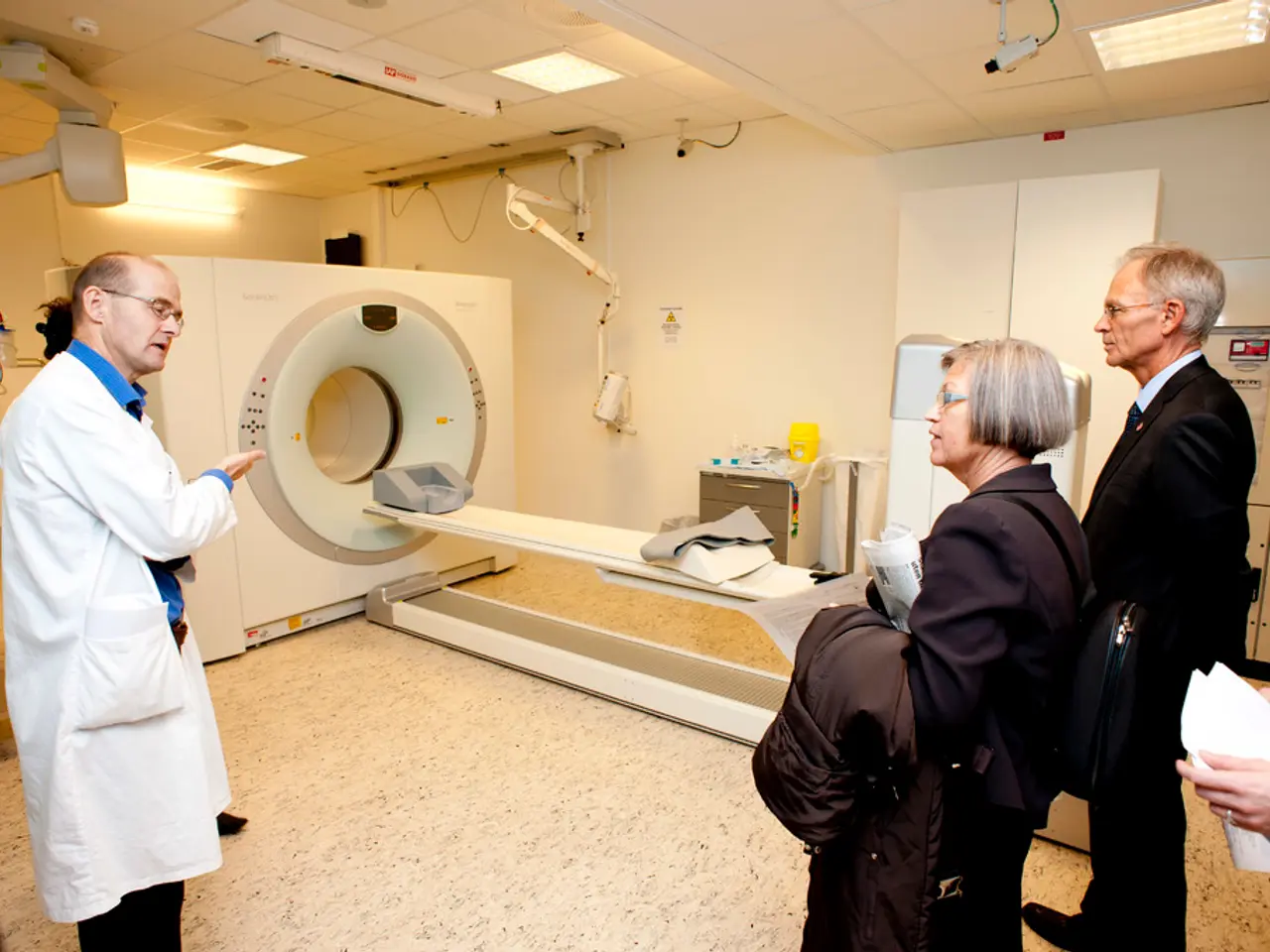Exploration of cutting-edge liver tumor therapies highlighted
The landscape of liver tumor treatment is undergoing a significant transformation, with a growing emphasis on personalized and multimodal strategies. This shift is particularly evident in the field of visceral medicine, where the complex nature of liver tumors demands differentiated and individually tailored treatment plans.
One of the key treatment options is surgical resection and ablation. Surgical resection is often used for early-stage hepatocellular carcinoma (HCC), offering potential for long-term survival. However, recurrence rates are high, making neoadjuvant or adjuvant therapies crucial. Ablation techniques like radiofrequency ablation (RFA) and microwave ablation are preferred for tumors under 3 cm, especially in early-stage HCC, according to AASLD guidelines.
Transarterial chemoembolization (TACE) is another method recommended for multifocal disease with less than 50% liver involvement. It offers a non-surgical option for treating liver tumors.
Radiation therapies, such as Stereotactic Body Radiotherapy (SBRT) and Selective Internal Radiation Therapy (SIRT), are also being utilised more frequently. Recent studies suggest SBRT may outperform RFA for small tumors, indicating potential shifts in treatment guidelines. SIRT, though it did not show a survival advantage over sorafenib in the SARAH trial, remains an option for certain patient groups.
Systemic therapies, including immune checkpoint inhibitors and tyrosine kinase inhibitors, have also found a place in liver tumor treatment. Atezolizumab combined with bevacizumab has shown promise, although the IMBrave050 trial did not demonstrate significant benefits in recurrence-free survival.
Innovative techniques like Focused Ultrasound Therapy and CAR-T Cell Therapy are promising new directions. Focused Ultrasound Therapy offers a noninvasive, precise method for ablating tumor tissue, potentially as a bridge to transplantation or as a standalone treatment. CAR-T cells targeting glypican-3 (GPC3) and alpha-fetoprotein (AFP) have shown enhanced antitumor efficacy.
The trend towards personalized treatment extends beyond the choice of therapy. Genomic profiling, imaging and diagnostic techniques, and combination therapies are all used to tailor treatment plans to the specific characteristics of the patient and the tumor.
Prof. Dr. Markus Rentsch, Director of the Clinic for General, Visceral and Thoracic Surgery at Ingolstadt Clinic, emphasised the importance of these differentiated and individually tailored treatment strategies for liver tumors. The increasing incidence of liver tumors and liver metastases, including those related to demographic change, makes this topic more relevant than ever.
The specialist event on the diagnosis and therapy of liver tumors, which took place at Ingolstadt Clinic, provided a platform for interdisciplinary exchange among experts, affected individuals, and their relatives. The event underscored Ingolstadt Clinic's commitment to medical excellence and patient-centered care at the highest level.
Progress in medicine has made these tailored treatment strategies available, requiring close interdisciplinary cooperation. The event was part of the "Visceral Medicine Matinee" training series, offering participants the opportunity to engage in conversation with the speakers, exchange experiences, and discuss specific case studies. Benign liver tumors and their differentiated diagnosis and therapy were also part of the event's program.
Early detection and differentiated treatment of liver changes are crucial in the course of the disease and the quality of life of those affected. The event focused on diagnosis and strategy in the treatment of primary and secondary liver tumors, highlighting the evolving landscape of liver tumor treatment and the need for ongoing research to improve patient outcomes.
- Science has paved the way for personalized approaches in the treatment of liver tumors, with an increasing focus on health-and-wellness, mental-health, and nutrition considering the complex nature of these conditions.
- In the field of medical-conditions, such as liver cancer, therapies-and-treatments like surgical resection, ablation, transarterial chemoememberization (TACE), radiation therapies (like SBRT and SIRT), systemic therapies (immune checkpoint inhibitors and tyrosine kinase inhibitors), and innovative techniques (Focused Ultrasound Therapy and CAR-T Cell Therapy) are under exploration.
- Personalized treatment plans are essential not only in the choice of therapy but also in genomic profiling, imaging, and diagnostic techniques to ensure the best outcomes for the individual patient's liver tumor.
- Collaboration and ongoing research are vital in the landscape of liver tumor treatment to improve diagnosis, differentiated treatment, and ultimately the quality of life for those affected.




